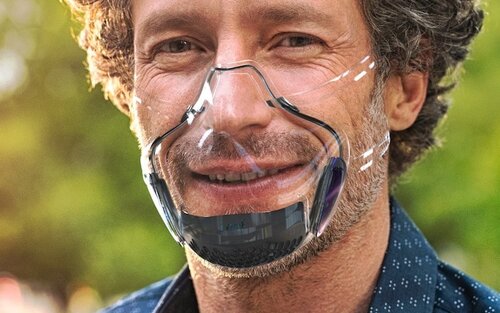Since the Kenyan government made wearing of face masks mandatory for everyone as a preventive measure against the coronavirus, the Deaf and the Hard of Hearing are yet to be sufficiently catered for, putting them at a higher risk of contracting the viral disease.
This is mainly because the standard face masks make lip-reading impossible, which denies both the Deaf and Hard of Hearing the opportunity to communicate effectively. According to US-Based Boys Town National Research Hospital, the use of face masks can increase communication difficulties for adults and children who are Deaf and Hard of Hearing.
“Not only can masks reduce the volume of speech, but they also make it more difficult for individuals to use facial cues or expressions and lip-read which can enhance speech understanding when words may not have been heard clearly,” the hospital says.
Solution
This problem could be quickly resolved should transparent face masks gain popularity in the country, as they have in other parts of the world. The research hospital says that transparent face masks will be helpful for persons with disabilities. “In addition to speaking slowly and clearly, clear face masks or masks with a clear panel over the mouth can help restore these important visual cues and help individuals who are Deaf and Hard of Hearing communicate more easily.”
A report filed by AFP finds that the uptake of transparent face masks is fast growing to help the Deaf to communicate in this era. AFP says that governments and organizations have already started taking a proactive approach and placing orders. For instance, authorities in Quebec have placed an order for 100,000 for distribution across the health network in the Canadian province.
Additionally, the provincial APDA association for the hard of hearing made an order for 100,000 washable transparent masks through local textile company Madolaine. AFP adds that in the United States, a private US medical firm ClearMask LLC says it had received clearance from the Food and Drug Administration for a fully transparent surgical mask for use in hospitals and clinics but also schools, retail and hospitality settings. A Baltimore-based firm is reported to be already producing non-surgical versions.
Meanwhile, volunteers in Belgium are crafting transparent face masks. According to data submitted by the United Nations, volunteers around the country are making thousands of transparent fask masks to give to the Deaf and Hard of Hearing people.
The Ministry of Health in Kenya recommends wearing of face masks or cloth face coverings in public settings where other social distancing measures are difficult to maintain (e.g. supermarkets, shops, markets, matatu, buses, boda boda). These masks will prevent the droplets from spreading further and thus protecting others. Popularizing such equipment is, therefore, necessary to cater to the needs of persons with disabilities.
Official data suggests that there are at least 600,000 people in the country who are Deaf, a number that could statistically go up. Globally, there are an estimated 72 million Deaf people worldwide, according to the World Federation of the Deaf, with more than 80 percent of them living in developing countries.
Margaret Njugunah

